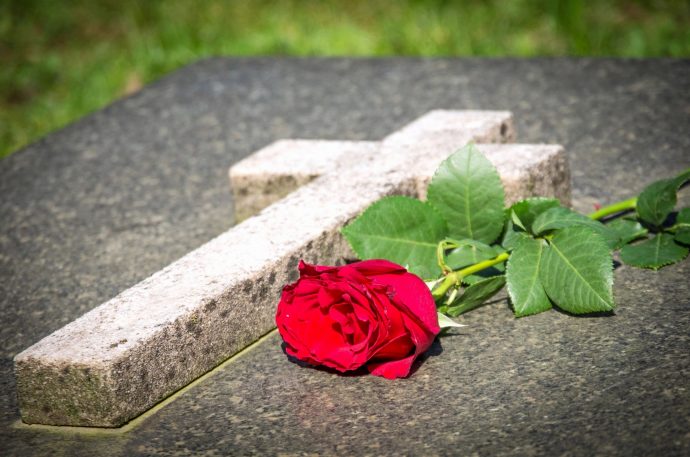We are all going to die. There’s a newsflash, right? Some of us are more acutely aware of this reality than others, either because of our age or because of our circumstances. But the inevitability of death does not wax and wane based on your awareness of it. You could even say not only are we all going to die, but we are in the process of dying. You are closer to your death right now than you were when you woke up this morning. We get little reminders of this every day.
I remember a couple of years ago Jana and I were at the park with some families from our church. All the kids were running around, and several ladies were standing there talking. They spoke about topics parents with young kids talk about – discipline, school, that kind of stuff. Jana noticed she had the ear of these women. And that’s when it hit her – we’re not the young ones any more. We used to be the young ones, but not any more – now we’re getting older.
See? Death.
A few months ago I went for an annual physical because I like to hear how terrible I am, and the doctor used this phrase for the first time: “A man of your age…” I had to blink twice at that.
Death!
This is the curse we are under. We are in a constant and increasing state of decay. And as we move further and further along, those groans become more and more audible. That’s our reality. The question, then, is how do we respond knowing this about ourselves? Or to reframe the question in light of the gospel:
How do we respond by faith to the curse of death?
This is an important question for us not only because we all have to deal with the inevitability of death, but because the Christian posture toward death is one of the things that separates us from the rest of the world.
In the middle of the third century, there was a terrible plague that broke out in the Roman Empire. At the height of the plague, it’s said that 5,000 people were dying each day. Can you imagine what that was like? You would be surrounded by death, everywhere you turn. Death in the streets. Death in your nostrils. Death in the food. It was a time when the curse, which is ever present, became readily and immediately apparent for everyone in the world. Here’s how one biographer, Pontius the deacon, described it:
“Afterwards there broke out a dreadful plague, and excessive destruction of a hateful disease invaded every house in succession of the trembling populace, carrying off day by day with abrupt attack numberless people, every one from his own house. All were shuddering, fleeing, shunning the contagion, impiously exposing their own friends, as if with the exclusion of the person who was sure to die of the plague, one could exclude death itself also. There lay about the meanwhile, over the whole city, no longer bodies, but the carcasses of many, and, by the contemplation of a lot which in their turn would be theirs, demanded the pity of the passers-by for themselves. No one regarded anything besides his cruel gains. No one trembled at the remembrance of a similar event. No one did to another what he himself wished to experience.”
It’s understandable, isn’t it? People fleeing, denying, racked with fear and paranoia. And that, though more dramatic, is mostly how the rest of the world deals with death. We run from it by not going to the doctor for fear of what they will say or refusing to act our age. We deny it through refusing to talk about it and then seeing how quickly we can push others through the grieving process so we don’t have to think about it any more. We live, in our most honest moments, afraid of what we know is lurking potentially around the very next corner.
Now what’s remarkable about this time in history is that while everyone else was running, denying, and blaming, Christians had a different posture. While other people were throwing their family into the streets, Christians actually moved throughout the empire to care for the sick and dying even at great risk of contracting the disease themselves. They did this for their own and for non-believers alike, even though many in the empire believed the plague was the fault of the Christians because they had angered the gods with their refusal to worship.
They were able to bless right in the grip of the curse because of faith. And this is the answer to our question.
How do we respond by faith to the curse of death? We don’t run. We don’t deny. We don’t fear. We bless. And the world will see.
Subscribe to MichaelKelley.co
Never miss a new post. Subscribe to receive these posts in your inbox and to receive information about new discipleship resources.





2 Comments